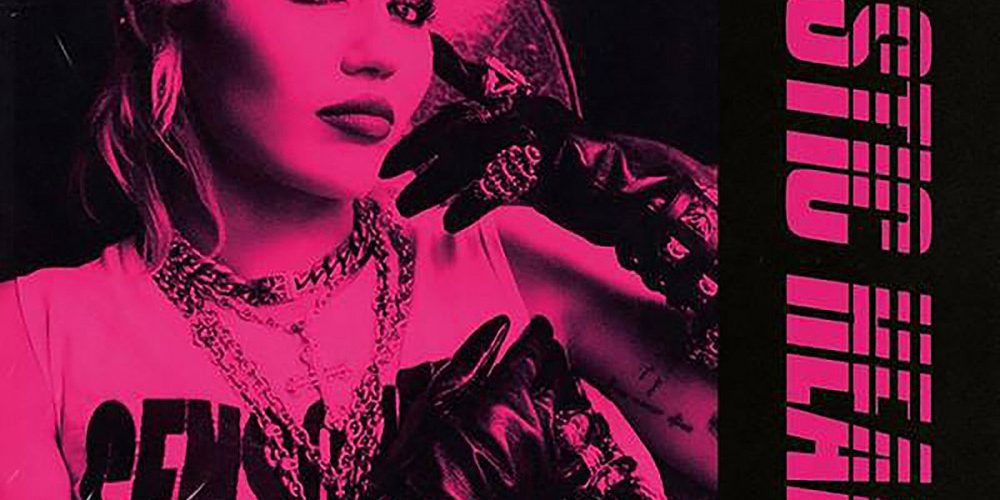Miley Cyrus’ ‘Plastic Hearts’ review – a love letter to ’70s/’80s rock, punk, and new wave
It's been over a decade since Miley Cyrus told the world that she can't be tamed, and she continues to live by it. After leaving her bubblegum teen pop days in the dust, she went on to try her hand at everything from hip hop to psychedelic pop to country with a tangible level of sincerity and the ability needed to pull most of it off. There's been criticism of the privilege that's allowed Miley to go in and out of these genres as she pleases, while Black artists who do similar things remain pigeonholed as "hip hop" or "urban," and that's a very valid criticism of the music industry as a whole, though it feels like Miley is genuine in her appreciation of the music, and not in a cynical music biz kind of way. Like tons of twentysomething millennials in the "I listen to everything" era, she seems to be following her musical heart wherever it takes her. Unlike most, she's been doing it — for half her life — with the whole world watching.
Miley's latest frontier is '70s/'80s rock, and her new album Plastic Hearts is basically a love letter to the music of (and adjacent to) that era. The album's first single was "Midnight Sky," an undeniable song that pays obvious homage to Stevie Nicks' "Edge of Seventeen," and it was followed a few months later with "Edge of Midnight," a mashup/remix of "Midnight Sky" and "Edge of Seventeen" that features Stevie herself contributing new vocals. That appears as a bonus track on Plastic Hearts alongside covers of Blondie's "Heart of Glass" and The Cranberries' "Zombie," both of which Miley recently covered at livestreamed festivals and both of which fit perfectly into the world of music on Plastic Hearts. (Unfortunately not included is her recent Velvet Underground cover.) Rock/punk icons Billy Idol and Joan Jett appear on the proper album, as do several other nods to iconic songs from rock history. The title track calls back to The Rolling Stones' "Sympathy for the Devil," "Angels Like You" hints at The Beatles' "In My Life," and the guitar solo on "WTF Do I Know" doesn't not sound like Queens of the Stone Age's "Little Sister." Plastic Hearts feels like the pop album equivalent of covering your notebook in band stickers, and it works because Miley makes it her own even when the callbacks to other people's songs are overwhelmingly obvious.
Miley made the bulk of the album with producer/guitarist Andrew Watt, who already proved his ability to fuse classic rock and modern pop when he worked with Ozzy Osbourne and Post Malone, and like those Ozzy/Posty collabs did, Plastic Hearts succeeds at merging those two worlds. By the chorus, "WTF Do I Know" turns into a straight-up punk song (or at least a pop punk song), the Billy Idol-featuring "Night Crawling" is exactly the kind of glammy hard rock that Billy was making in the '80s, and "Gimme What I Want," "Midnight Sky," and "Physical" (which features fellow '80s worshipper Dua Lipa and nods at Olivia Newton-John's "Physical," just as Dua's own 2020 single "Physical" did) sound straight out of the original new wave era, yet all of these songs fit snugly into the context of modern pop. At the very least, Miley is using her platform to expose a new generation to some timeless rock classics. And at the album's best, she's bringing something new to the table, offering up songs that stand tall next to those of her heroes.
Plastic Hearts isn't all rockers; it's got some ballads and some songs that embrace Miley's country side, like the Mark Ronson-produced, lighters-out highlight "High" and the Joan Jett-featuring "Bad Karma," but Stevie Nicks and The Rolling Stones did country too, so it's not like it's out of place. It's also not a perfect album; it's front-loaded with the best songs and starts to fizzle out towards the end, and some moments feel totally skippable. The message about the effects of negativity in the media on "Hate Me" is a strong one, but the song itself stands out as the album's weakest. And though Joan Jett has done great collaborations with Miley in the past (like when they covered The Replacements with Laura Jane Grace), her talents feel misused on the generic, half-baked "Bad Karma." Still, Plastic Hearts feels overall like one of Miley's most undeniable albums, especially if you like all the same artists she features and/or pays homage to on it. It sounds like she embraced the music she loves, didn't overthink it, and had fun with it. Considering she could be using her fame for just about anything, it's pretty cool that she's choosing Blondie covers and Billy Idol features and doing justice to those artists in the process.
Plastic Hearts is out now on RCA. Stream it and watch a couple videos from it below…
